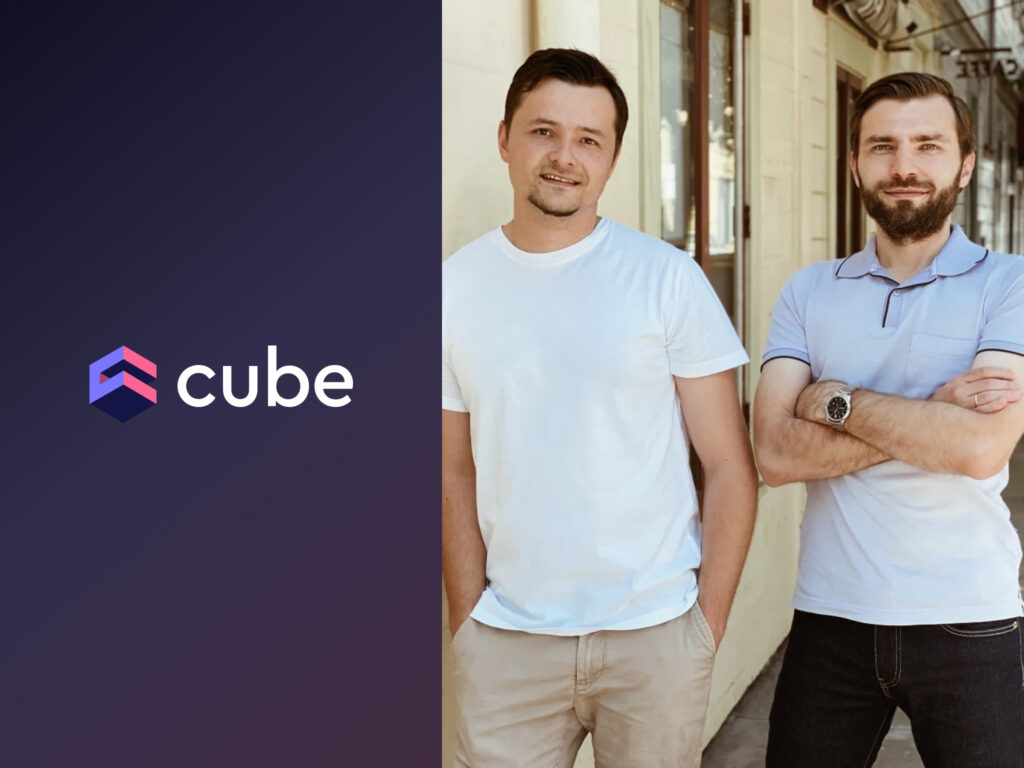
How Cube’s Universal Semantic Layer Unlocks a New Generation of AI Apps
Cube is the standard for providing semantic consistency to LLMs, and we are investing in a new $25M financing after leading the seed round in 2020.

If you’ve ever applied for a job, a loan, or bank account, you’ve probably had a lender or employer check your income or employment status. This process is frustratingly manual, with lenders and employers paying a verification service to call HR staffers and check applicant job status or monthly income. That task has become all the more challenging in today’s increasingly flexible economy where many workers combine multiple part-time (working at Walmart) and gig-based (driving for Postmates) jobs, complicating the verification process.
Because tens of millions of Americans apply for loans and jobs each year, incumbent service providers generate between $4–6 billion in annual revenue in the U.S. alone. Any company offering better automation of the employment and income verification process could become a billion-dollar business while unlocking new applications along the way — and that’s exactly what Argyle does.
Today, we’re excited to announce that BCV is leading Argyle’s $20 million Series A financing, with participation from Bedrock and F-Prime Capital; this investment doubles down on our prior participation in Argyle’s seed round last year, which we co-led with Checkr, an innovator in background verification. We’re honored to be joined by an exceptional syndicate of sought-after angel investors and fintech domain experts, including , Zach Abrams (VP Product at Brex), Aaron Frank (Founder/CEO of Final, acq. by Goldman Sachs), as well as Nat Turner and Zach Weinberg (Founders of Flatiron Health).
Similar to how Plaid changed the fintech industry by opening up safe access to financial institutions, Argyle is doing the same with work applications. A bank may integrate Argyle into its credit card approval form, for example. Once a consumer gives permission, Argyle can scan their employment accounts to derive earnings, hours, ratings, and other information. Lenders, insurers, employers, and other parties use Argyle to inform their credit, underwriting, and hiring processes.
Especially in light of several highly-publicized hacking breaches at credit bureaus, many consumers and regulators are increasingly frustrated with a data ecosystem that buys, sells, and often loses personal data without permission. In contrast, Argyle’s product is already compliant with major data privacy laws, and advocates a user-driven model where consumers have more control.
Two of Argyle’s founders, Shmulik Fishman and Billy Marsden, were previously early leaders at Stratim, an on-demand valet parking company, where they learned firsthand how challenging it is to verify information on hourly workers, making onboarding new hires cumbersome and time-consuming. They also saw how challenging it was for hourly workers to get access to credit or insurance due to their non-traditional employment histories.
Since our initial investment last year, we’ve been fortunate to work closely with Shmulik, Billy, and Argyle CTO Audrius Zujus. Without exception, we have been continually impressed by their pace of business execution and technical iteration, while adhering to the highest standards of compliance, data transparency, and consumer protection. For example, after connecting to employment systems to read information, they discovered an opportunity to offer employment monitoring over time and to “write” to those accounts, enabling consumers to easily and conveniently reconfigure their direct deposit instructions.
Finally, a major driver of developer adoption has been Argyle’s impressive progress on the range of work applications it can access. Consumers can now authorize access to data from ADP, the largest payroll provider in the U.S., as well as emerging payroll processors (Gusto and Zenefits), major employer portals (Kroger, UPS, Amazon), and work marketplaces (Uber, TaskRabbit, DoorDash, Wonolo, Instacart). Argyle has been integrated into products built by both major financial institutions, and young upstart competitors, connecting to thousands of worker accounts, retrieving millions of work records, and attracting a deep pipeline worth millions in annual revenue.
We’re thrilled to celebrate this milestone in Argyle’s growth and cannot wait to help accelerate their next stage of expansion, enabling more workers to control their personal data and access a broader array of lending, insurance, and other benefits and services.
Cube is the standard for providing semantic consistency to LLMs, and we are investing in a new $25M financing after leading the seed round in 2020.
In this edition of “In the Lab,” Amit Aggarwal explains why he’s building an AI startup in BCV Labs after selling his company The Yes to Pinterest.
For now, most GenAI startups are focused on completing paperwork and are built on prompts. That may change in the months ahead.